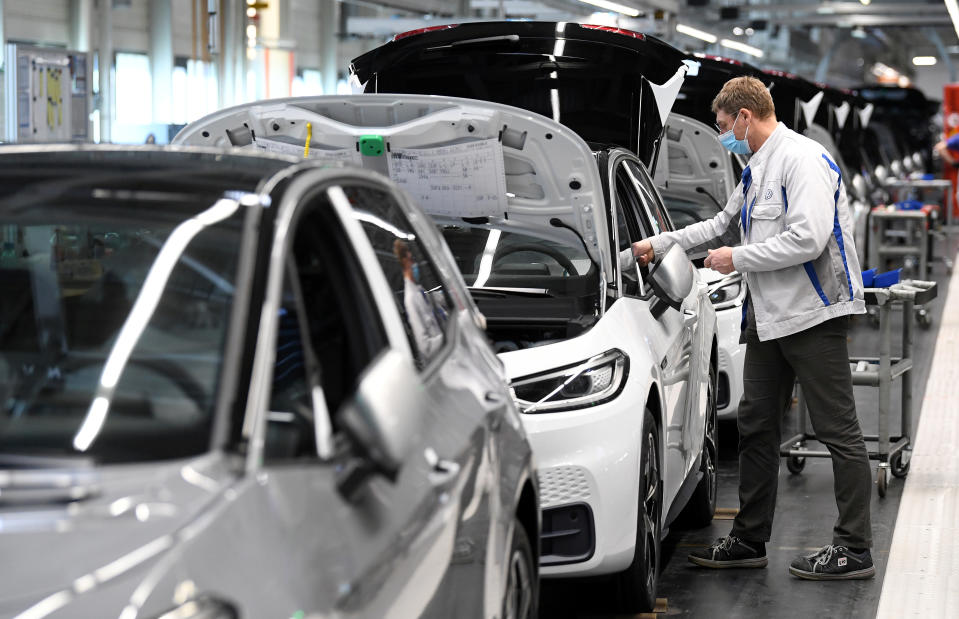'Every second electric car' in Europe comes from Germany

German carmakers may have dragged their feet when it came to switching to electromobility, but they are fast gaining ground, according to the country’s Automotive Industry Association (VDA), which said this weekend that nearly every second electric car sold in Europe in October was German-made.
“The German automotive industry is already today the European champion in electromobility,” VDA president Hildegard Müller said, noting that in western Europe, German car manufacturers have increased their share of the electric-car market to 46%.
Germany is the market leader in electric cars in Norway, which has been streets ahead of other European countries in its switch to cleaner mobility.
In Germany too, the electric car market is booming: sales of e-cars cars quadrupled in October, compared with the same month a year ago, accounting for 8.4% of all new car registrations to to bring the market share of all-electric and hybrid cars to a record 17.5% high.
Much of this bump in sales is down to the increased government subsidies for cleaner-energy vehicles this year. Germany, which decided against putting money behind buyer premiums to boost sales of petrol and diesel cars in the COVID-19 pandemic, has earmarked around €2bn (£1.7bn, $2.3bn) to support its essential auto industry migrate to electric mobility between 2021 and 2024.
READ MORE: Electric car sales rise in Germany despite fall in wider market
The VDA boss said that currently more than 12,000 new electric cars and plug-in hybrids a week are being registered in Germany, and that two out of three cars sold this year were from domestic manufacturers.
There is however an issue with the low number of charging points across Germany — some 200 new ones a week are coming online, inadequate for the growing numbers of electric cars.
READ MORE: Carmakers form CO2 emission pools to avoid hefty EU fines
“The government's charging infrastructure master plan provides for 1 million public charging points by 2030,” Müller told Spiegel magazine. “To achieve this, we would need around 2,000 new charging points per week from now on. That is 10 times what is currently being built… if things continue as they have up to now, e-mobility will not be able to gain broad acceptance.”
Business consultancy McKinsey said in March that Germany’s Volkswagen, Daimler and BMW will become global market leaders for electric cars from 2021.
“Europe has 60% more electric cars on the road than the USA,” says Müller said. “The sudden increase shows that the new models are inspiring buyers.”
WATCH: What does the future of electric vehicles look like?

